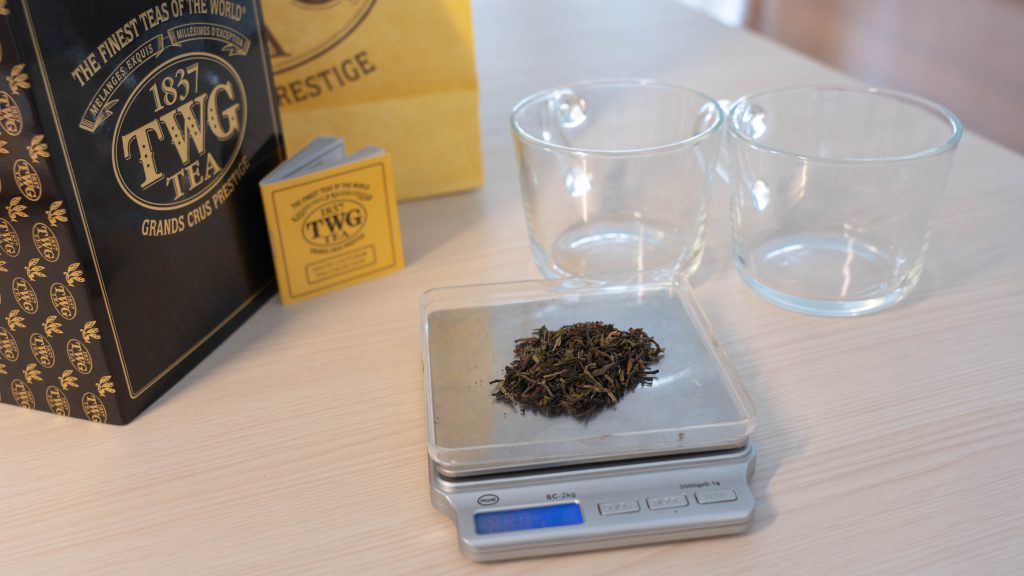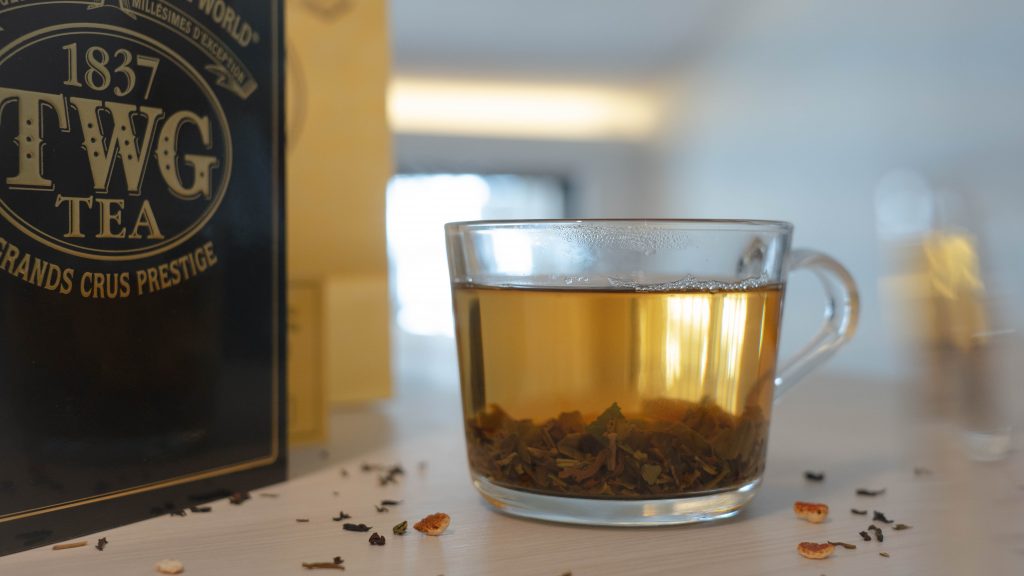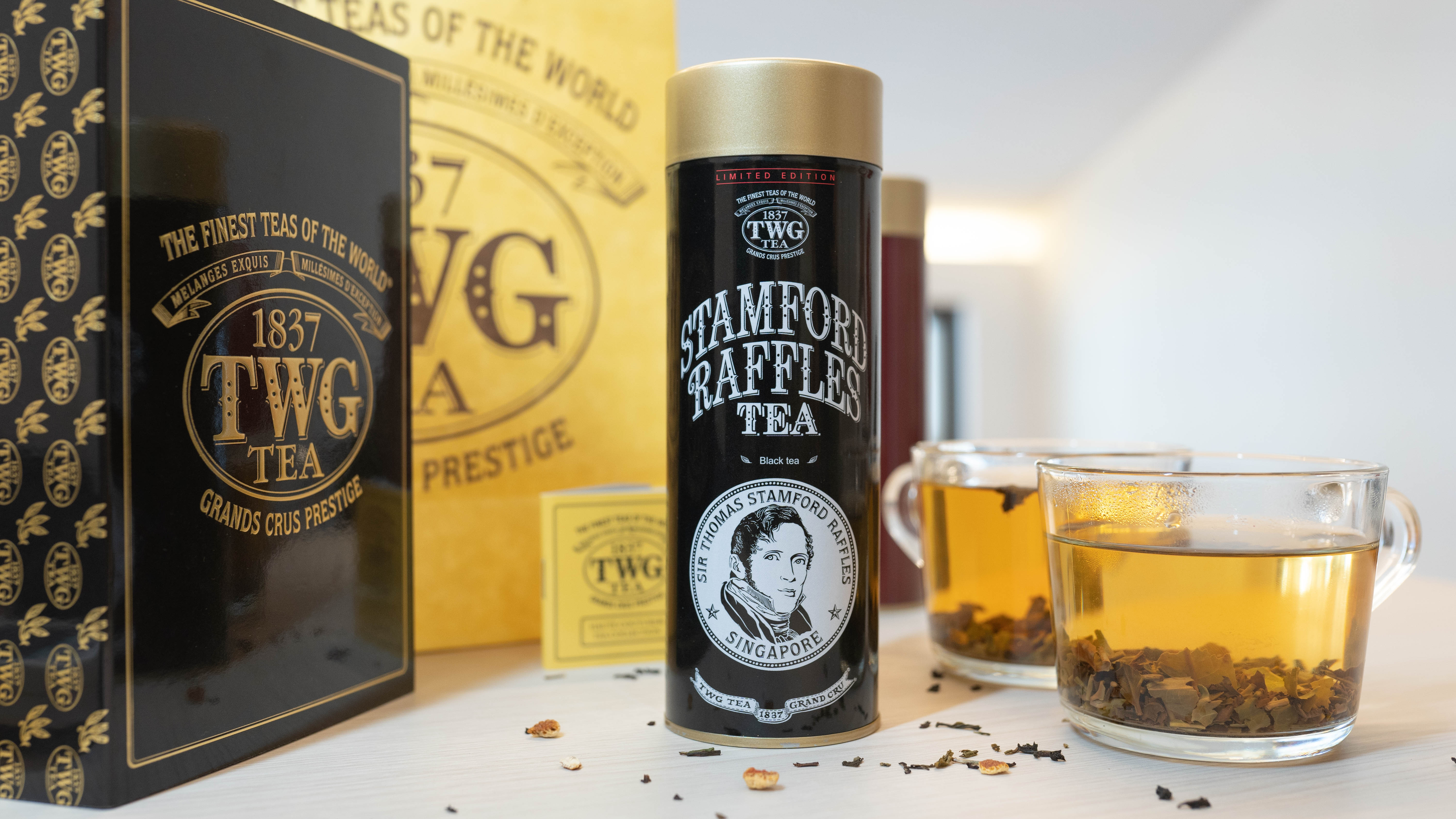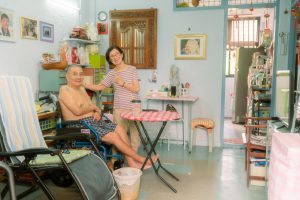It’s all a bit too much for me. After ten minutes of dessert forks and canned Vivaldi, I want to jump on the table and scream, “THE PROLETARIAT HAVE NOTHING TO LOSE BUT THEIR CHAINS.”
And as if the whole enterprise wasn’t silly enough, they made a new tea named after The Man Himself.
Behold: the Stamford Raffles Tea.

Prior to this Bicentennial beverage, there was a Singapore Breakfast Tea, Midnight in Singapore Tea, Weekend in Singapore Tea; Tokyo-Singapore Tea; New York-Singapore Tea; Paris-Singapore Tea; London-Singapore Tea, and last but not least, Singapore Surprise Tea.
However, the ‘Stamford Raffles’ is TWG’s first tea to be named after an actual historical figure. It costs $40 per 100g, and every can is emblazoned with a portrait of Raffles pouting in his turtleneck.
He’s giving us his best hey-baby-come-hither look, and who can blame him? In the half-empty TWG outlet I visited, there was row upon row of Stamford Raffles Tea, prominently displayed but totally unmolested.
Somewhere in the Scottish lowlands, Farquhar’s ghost is laughing his head off. Even the store assistant—a young man dressed in white starch—couldn’t help giggling when I questioned him about their Raffles-inspired refreshment.
He was, however, very knowledgeable about the product and could answer all of my questions.
No, this isn’t a government-sponsored Bicentennial tie-in. Yes, this is a black tea, but there are golden needles a.k.a white tea leaves mixed in. Bergamot, which gives Earl Grey its citrusy aroma, is added to give the Stamford Raffles tea its sweetness.
No, you shouldn’t add milk because this is a blended tea.
“You can add sugar if you like,” he said, whilst shooting me a frown which said, “No, don’t fucking add sugar, you filthy philistine.”
Needless to say, I was sold. Take my money. Colonise my tastebuds.

While the real man reeked of insecurity and naked ambition, TWG’s ‘Raffles’ is supposed to be ‘a balance of force and smoothness’. There are notes of ‘fine bergamot’, alongside ‘berries’, ‘anise’, and a ‘caramel finish’.
Drinking it should bring back ‘reminiscences’ of ‘a warm afternoon idyll’ and ‘tropical ports of call’.
I can’t speak for the ‘tropical ports of call’ because I do not know what malaria and seamen taste like, but TWG was not lying about the ‘sweet fragrance’ and ‘berries’. After infusing 2.5g of leaves for the recommended 3 minutes, the RICE pantry was filled with a wonderfully fruity aroma. People drifted in from other rooms, sniffing the air and saying, “Ooo, what’s that?”
Raffles Tea, I replied, to gales of bemused laughter.
They can laugh all they want, but ‘Stamford Raffles’ turned out to be a highly-enjoyable brew. TWG’s decor may look like Trump-meets-Versailles, but you can’t deny their exper-teas. The ‘Raffles’ is a delight for the senses and a real pleasure for one’s palate. It has neither the astringency of cheaper teabags nor the overpowering floral perfume of your supermarket fruit infusions. What hits your nostrils is light, pleasant, and remarkably balanced; with just enough ‘body’ to still taste like a proper cup of Empire.
Needless to say, it is a vast improvement over the usual Lipton and Chamomile.
Almost everyone in the office agreed when I served them a cup. They gagged when I told them about the $40 price tag, but up until the moment I unleashed that nugget of information, there were audible ‘Mmmm’s, closed eyes, and appreciative nods all around. My colleagues might be too cheapo to pay for ‘Raffles’ out of their own wallet, but they certainly didn’t mind a cup or eleven.
This is not to say that ‘Raffles’ tea is perfect. The B.S. about ‘a warm afternoon idyll’ proves prescient. This is definitely not a hearty breakfast tea for construction workers or even spreadsheet warriors.
Like most of TWG’s offerings, it’s a chi-chi ‘high-tea’-type tea for Paragon-bound tai-tais, best enjoyed with an abundance of leisure and gossip.
In short, it’s more soothing than invigorating. The perfect drink after a long hot day of oppressing the natives, or bickering with your superiors in the East India Company.

You are right, of course. To be honest, I don’t really care about ‘Stamford Raffles Tea’ either, except as a curiosity in the wider problem of post-colonial history. Even though Raffles was alive barely 2 centuries ago, he seems as far removed from reality/time-and-place as England’s St George or Russia’s Alexander Nevsky. Nevermind Raffles’ fairly well-documented career or his controversial policies, there is so much of the man about in Singaporean that he has slipped the surly bonds of history to become a metaphorical Merlion—half myth, half meme.
Raffles Hospital. Raffles Hotel. Raffles Tuition Centre. Raffles Western Delights. Raffles Air.
At this point, the ‘R’ word has become a sort of etymological Rorschach test, signifying everything from old-world elegance to present-day privilege. You won’t dream of making a Lim Bo Seng Kaya Spread or a Munshi Abdullah Moleskine, but Raffles occupies a strange place in the quantum realm; a place neither Singaporean cynicism nor common sense applies—a place where curiosities like Stamford Raffles Tea may yet exist.
This is, of course, a problem for 2019, when we are belatedly trying to decolonise our history. Real historical figures may be re-evaluated and subsequently purged from the textbooks, but how does one decolonise a meme? How do you erase something that has become a language unto itself?
Wew. It’s a headache, a joke, and a pain-in-the-arse for all who want to see the wrongs of history rectified. It’s a problem that needs you to Keep Calm and Drink Raffles Tea.






